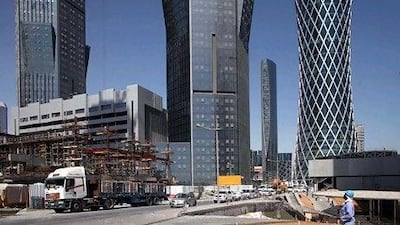Qatar is investing US$250 million (Dh918.3m) in a Barclays-owned natural resources private-equity fund as Doha seeks to become a regional asset management hub.
Qatar Asset Management Company (QAMC), a joint venture between the Qatar Financial Centre Authority and the Qatar Investment Authority, have partnered with Barclays Natural Resource Investments (BNRI). QAMC will invest $250m in BNRI's current and future holdings - most of it going to the fund's existing $2.1 billion portfolio.
"This strategic partnership is an important milestone in Qatar's strategy of developing an asset-management hub and promoting the expansion of Qatar's financial-services industry," said Abdulrahman Ahmad Al Shaibi, the managing director of Qatar Financial Centre Authority.
The deal comes two years after the authority said it would focus on developing three core sectors - asset management, reinsurance and captive insurance. The global financial crisis has forced many international financial names with a presence in the Gulf to withdraw to their home markets, increasing competition among Dubai, Doha and Bahrain.
Shashank Srivastava, the acting chief executive of Qatar Financial Centre Authority, denied that the partnership was about Qatar buying investment in the asset-management sector.
"Seeding has always been part of our strategy. We are not buying the capability," he said.
The BNRI office will be in the Qatar Financial Centre and headed by Mark Brown as the managing director. Other fund executives will relocate from New York and London.
The private-equity fund targets strong management teams in the natural-resources sector - mainly in upstream oil and gas, mining and power. Typically $50m to $200m is committed to each venture for transactions identified by the company.
"That's the most crucial point," said John Vitalo, the regional chief executive of Barclays. "Typically in the private-equity market, you start out looking for assets that might be attractive to buy. But BNRI starts with the management teams it wants to back."
twitter: Follow and share our breaking business news. Follow us

